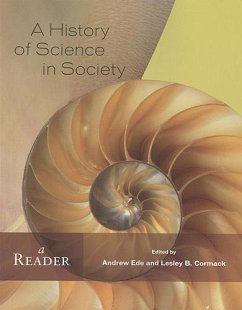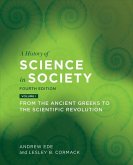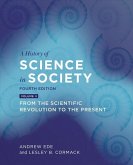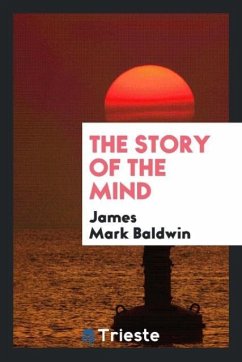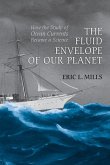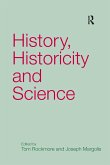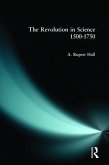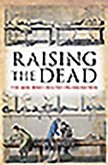- Broschiertes Buch
- Merkliste
- Auf die Merkliste
- Bewerten Bewerten
- Teilen
- Produkt teilen
- Produkterinnerung
- Produkterinnerung
Beginning with the birth of science in the ancient Greeks, the collection contains just about every major textual source in the growth of science, not shying away from recent controversies in the political and social place of contemporary science.
Andere Kunden interessierten sich auch für
![A History of Science in Society, Volume I A History of Science in Society, Volume I]() Andrew EdeA History of Science in Society, Volume I36,99 €
Andrew EdeA History of Science in Society, Volume I36,99 €![A History of Science in Society, Volume II A History of Science in Society, Volume II]() Andrew EdeA History of Science in Society, Volume II37,99 €
Andrew EdeA History of Science in Society, Volume II37,99 €![The story of the mind The story of the mind]() James Mark BaldwinThe story of the mind21,99 €
James Mark BaldwinThe story of the mind21,99 €![The Fluid Envelope of Our Planet The Fluid Envelope of Our Planet]() Eric L MillsThe Fluid Envelope of Our Planet55,99 €
Eric L MillsThe Fluid Envelope of Our Planet55,99 €![History, Historicity and Science History, Historicity and Science]() History, Historicity and Science74,99 €
History, Historicity and Science74,99 €![The Revolution in Science 1500 - 1750 The Revolution in Science 1500 - 1750]() A Rupert HallThe Revolution in Science 1500 - 1750110,99 €
A Rupert HallThe Revolution in Science 1500 - 1750110,99 €![Raising the Dead Raising the Dead]() Andy DouganRaising the Dead12,99 €
Andy DouganRaising the Dead12,99 €-
-
-
Beginning with the birth of science in the ancient Greeks, the collection contains just about every major textual source in the growth of science, not shying away from recent controversies in the political and social place of contemporary science.
Hinweis: Dieser Artikel kann nur an eine deutsche Lieferadresse ausgeliefert werden.
Hinweis: Dieser Artikel kann nur an eine deutsche Lieferadresse ausgeliefert werden.
Produktdetails
- Produktdetails
- Verlag: University of Toronto Press
- Seitenzahl: 470
- Erscheinungstermin: 1. Mai 2007
- Englisch
- Abmessung: 224mm x 175mm x 25mm
- Gewicht: 726g
- ISBN-13: 9781551117706
- ISBN-10: 1551117703
- Artikelnr.: 26192099
- Herstellerkennzeichnung
- Libri GmbH
- Europaallee 1
- 36244 Bad Hersfeld
- gpsr@libri.de
- Verlag: University of Toronto Press
- Seitenzahl: 470
- Erscheinungstermin: 1. Mai 2007
- Englisch
- Abmessung: 224mm x 175mm x 25mm
- Gewicht: 726g
- ISBN-13: 9781551117706
- ISBN-10: 1551117703
- Artikelnr.: 26192099
- Herstellerkennzeichnung
- Libri GmbH
- Europaallee 1
- 36244 Bad Hersfeld
- gpsr@libri.de
Andrew Ede is an adjunct professor in the Department of History and Sociology at the University of British Columbia Okanagan.
Chronology of Readings
Chapter 1: The Origins of Natural Philosophy
1.1 Pre-Socratics
1.2 Plato
1.2.1 The Republic
1.2.2 Timaeus
1.3 Aristotle
1.3.1 Posterior Analytics
1.3.2 Prior Analytics
1.3.3 Physics
1.4 Euclid, The Elements
1.5 Lucretius, On the Nature of Things
Chapter 2: The Roman Era and the Rise of Islam
2.1 Ptolemy
2.1.1 Almagest
2.1.2 Geography
2.2 Galen, On the Therapeutic Method
2.3 Pliny the Elder, Natural History
2.4 Boethius, "On Arithmetic"
2.5 Geber, Alchemy
2.6 Ibn Rushd (Averroes), Commentary on Aristotle
2.7 Ibn Sina (Avicenna)
2.7.1 "On the formation of Minerals and Metals"
2.7.2 "Canon"
2.8 Al-Khwarizmi, "Six Types of Rhetorical Algebraic Equations"
2.9 Al-Ghazali, Incoherence of the Philosophers
2.10 Maimonides, The Guide for the Perplexed
Chapter 3: The Revival of Natural Philosophy in Western Europe
3.1 Alcuin, The Rhetoric of Alcuin and Charlemagne
3.2 Albertus Magnus, "On the Material, Hardness, and Fissility of Stones"
3.3 Thomas Aquinas, "Questions I-IV of his Commentary on the De Trinitate
of Boethius"
3.4 Jean Buridan, "The Impetus Theory of Projectile Motion"
3.5 Robert Grosseteste, "On the Rainbow"
3.6 Theodoric of Freiberg, "On the Rainbow"
3.7 Nicole Oresme, Geometry of Qualities and Motions
3.8 William Ockham
3.8.1 Theory of Terms: Summa Logicae (Part I)
3.8.2 "Questions on Aristotle’s Physics"
3.9 Johannes Sacrobosco, The Sphere
Chapter 4: Science in the Renaissance: The Courtly Philosophers
4.1 Nicolas Copernicus, On the Revolutions
4.2 Galileo Galilei
4.2.1 Two New Sciences
4.2.2 "Letter to the Grand Duchess Christina"
4.3 Johannes Kepler, The Harmony of the World
4.4 Paracelsus, Ioatrochemistry
4.5 Andreas Vesalius, The Epitome of De Fabrica Corporis Humanis
Chapter 5: The Scientific Revolution: Contested Theory
5.1 Francis Bacon
5.1.1 The New Atlantis
5.1.2 The New Organon
5.2 Rene Descartes, Discourse on the Method of Rightly Conducting One’s
Reason and of Seeking Truth in the Sciences
5.3 Margaret Lucas Cavendish, Duchess of Newcastle, Grounds of Natural
Philosophy
5.4 Isaac Newton
5.4.1 The Principia Mathematica
5.4.2 Opticks
5.5 William Harvey, The Circulation of the Blood
5.6 Robert Boyle, The Skeptical Chymist
Chapter 6: The Enlightenment and Enterprise
6.1 Denis Diderot, "The Arts" from Encyclopedie
6.2 Count Francesco Algarotti, Sir Isaac Newton’s Philosophy explain’d for
the Use of the Ladies
6.3 Jean-Antoine-Nicolas de Caritat, Marquis de Condorcet, Selected
Writings
6.4 Joseph Priestley, Considerations on the Doctrine of Phlogiston and the
Decomposition of Water
6.5 Antoine Lavoisier, Elements of Chemistry
6.6 Benjamin Franklin, Experiments and Observations on Electricity
6.7 Caroline Herschel, Autobiographies
6.8 John Playfair, Illustrations of the Huttonian Theory of the Earth
6.9 Mungo Park, Travels into the Interior of Africa
Chapter 7: Science and Empire
7.1 Alexander von Humboldt, Cosmos
7.2 Georges Cuvier, Essay on the Theory of the Earth
7.3 Jean Baptiste Pierre Antoine de Monet, Chevalier de Lamarck, Zoological
Philosophy
7.4 Charles Babbage, Reflections on the Decline of Science in England
7.5 Charles Lyell, Principles of Geology
7.6 Charles Darwin, On the Origin of Species
7.7 Francis Galton, Hereditary Genius: An Inquiry into its Laws and
Consequences
7.8 Herbert Spencer, The Principles of Sociology
7.9 Louis Pasteur, Studies on Fermentation
7.10 William Thomson Kelvin, 1st Baron, "Review of Evidence Regarding the
Physical Condition of the Earth"
7.11 Dmitri Ivanovitch Mendeleev, The Principles of Chemistry
Chapter 8: The Death of Certainty: Science and War
8.1 Count Benjamin Thompson Rumford, An Experimental Inquiry Concerning the
Source of the Heat which is Excited by Friction
8.2 Michael Faraday, Experimental Researches in Electricity
8.3 James Clerk Maxwell, A Dynamical Theory of Electromagnetic Field
8.4 J.J. Thomson, "Carriers of Negative Electricity"
8.5 Amedeo Avogadro, "Essay on a Manner of Determining the Relative Masses
of the Elementary Molecules of Bodies and the Proportions in which they
enter into these Compounds"
8.6 Ernest Rutherford, The Newer Alchemy
8.7 Marie Sklodowska Curie
8.7.1 Radioactive Substances
8.7.2 Eve Curie, Madame Curie: A Biography
8.8 L.F. Haber, The Poisonous Cloud: Chemical Warfare in the First World
War
8.9 Albert Einstein
8.9.1 "On the Electrodynamics of Moving Bodies"
8.9.2 "What is the Theory of Relativity?"
8.10 Sigmund Freud, The Ego and the Id
Chapter 9: Entering the Atomic Age
9.1 Gregor Mendel, Experiments in Plant Hybridisation
9.2 Thomas Hunt Morgan, The Scientific Basis of Evolution
9.3 Erwin Schrödinger, "Quantum Mechanics"
9.4 Lise Meitner and Otto R. Frisch
9.4.1 "Disintegration of Uranium by Neutrons"
9.4.2 "Products of the Fission of the Uranium Nucleus"
9.5 Committee on Political and Social Problems, Manhattan Project, "Franck
Report"
9.6 Robert Oppenheimer, "Atomic Explosives [May 1946]"
9.7 Erwin Schrödinger, What is Life? The Physical Aspects of the Living
Cell
9.8 John D. Watson and Francis H. Crick, "Molecular Structure of Nucleic
Acids: A Structure for Deoxyribose Nucleic Acid"
9.9 Barbara McClintock, "The Significance of Responses of the Genome to
Challenge"
Chapter 10: 1957: The Year the World Became a Planet
10.1 John F. Kennedy, "Special Message to the Congress on Urgent National
Needs"
10.2 Sydney Chapman, "Introduction to the History of the First
International Polar Year"
10.3 Sir Harold Spencer Jones, "The Inception and Development of the
International Geophysical Year"
10.4 J. Tuzo Wilson
10.4.1 "Hypothesis of Earth’s Behaviour"
10.4.2 "A New Class of Faults"
10.5 Vannevar Bush, Modern Arms and Free Men
10.6 Fred Hoyle, The Nature of the Universe
Chapter 11: Man on the Moon, Microwave in the Kitchen
11.1 Margaret Sanger
11.1.1 An Autobiography
11.1.2 "Birth Control and Racial Betterment"
11.2 Charles Babbage, "Of the Analytical Engine"
11.3 Alan Turing, "Computing Machinery and Intelligence"
11.4 Rachel Carson, Silent Spring
11.5 Human Genome Project, "Mission Statement"
11.6 UNESCO, "Universal Declaration on the Human Genome and Human Rights"
11.7 US Supreme Court, Diamond v. Chakrabarty, 447 US 303 (1980)
Bibliography
Sources
Index of Topics
Chapter 1: The Origins of Natural Philosophy
1.1 Pre-Socratics
1.2 Plato
1.2.1 The Republic
1.2.2 Timaeus
1.3 Aristotle
1.3.1 Posterior Analytics
1.3.2 Prior Analytics
1.3.3 Physics
1.4 Euclid, The Elements
1.5 Lucretius, On the Nature of Things
Chapter 2: The Roman Era and the Rise of Islam
2.1 Ptolemy
2.1.1 Almagest
2.1.2 Geography
2.2 Galen, On the Therapeutic Method
2.3 Pliny the Elder, Natural History
2.4 Boethius, "On Arithmetic"
2.5 Geber, Alchemy
2.6 Ibn Rushd (Averroes), Commentary on Aristotle
2.7 Ibn Sina (Avicenna)
2.7.1 "On the formation of Minerals and Metals"
2.7.2 "Canon"
2.8 Al-Khwarizmi, "Six Types of Rhetorical Algebraic Equations"
2.9 Al-Ghazali, Incoherence of the Philosophers
2.10 Maimonides, The Guide for the Perplexed
Chapter 3: The Revival of Natural Philosophy in Western Europe
3.1 Alcuin, The Rhetoric of Alcuin and Charlemagne
3.2 Albertus Magnus, "On the Material, Hardness, and Fissility of Stones"
3.3 Thomas Aquinas, "Questions I-IV of his Commentary on the De Trinitate
of Boethius"
3.4 Jean Buridan, "The Impetus Theory of Projectile Motion"
3.5 Robert Grosseteste, "On the Rainbow"
3.6 Theodoric of Freiberg, "On the Rainbow"
3.7 Nicole Oresme, Geometry of Qualities and Motions
3.8 William Ockham
3.8.1 Theory of Terms: Summa Logicae (Part I)
3.8.2 "Questions on Aristotle’s Physics"
3.9 Johannes Sacrobosco, The Sphere
Chapter 4: Science in the Renaissance: The Courtly Philosophers
4.1 Nicolas Copernicus, On the Revolutions
4.2 Galileo Galilei
4.2.1 Two New Sciences
4.2.2 "Letter to the Grand Duchess Christina"
4.3 Johannes Kepler, The Harmony of the World
4.4 Paracelsus, Ioatrochemistry
4.5 Andreas Vesalius, The Epitome of De Fabrica Corporis Humanis
Chapter 5: The Scientific Revolution: Contested Theory
5.1 Francis Bacon
5.1.1 The New Atlantis
5.1.2 The New Organon
5.2 Rene Descartes, Discourse on the Method of Rightly Conducting One’s
Reason and of Seeking Truth in the Sciences
5.3 Margaret Lucas Cavendish, Duchess of Newcastle, Grounds of Natural
Philosophy
5.4 Isaac Newton
5.4.1 The Principia Mathematica
5.4.2 Opticks
5.5 William Harvey, The Circulation of the Blood
5.6 Robert Boyle, The Skeptical Chymist
Chapter 6: The Enlightenment and Enterprise
6.1 Denis Diderot, "The Arts" from Encyclopedie
6.2 Count Francesco Algarotti, Sir Isaac Newton’s Philosophy explain’d for
the Use of the Ladies
6.3 Jean-Antoine-Nicolas de Caritat, Marquis de Condorcet, Selected
Writings
6.4 Joseph Priestley, Considerations on the Doctrine of Phlogiston and the
Decomposition of Water
6.5 Antoine Lavoisier, Elements of Chemistry
6.6 Benjamin Franklin, Experiments and Observations on Electricity
6.7 Caroline Herschel, Autobiographies
6.8 John Playfair, Illustrations of the Huttonian Theory of the Earth
6.9 Mungo Park, Travels into the Interior of Africa
Chapter 7: Science and Empire
7.1 Alexander von Humboldt, Cosmos
7.2 Georges Cuvier, Essay on the Theory of the Earth
7.3 Jean Baptiste Pierre Antoine de Monet, Chevalier de Lamarck, Zoological
Philosophy
7.4 Charles Babbage, Reflections on the Decline of Science in England
7.5 Charles Lyell, Principles of Geology
7.6 Charles Darwin, On the Origin of Species
7.7 Francis Galton, Hereditary Genius: An Inquiry into its Laws and
Consequences
7.8 Herbert Spencer, The Principles of Sociology
7.9 Louis Pasteur, Studies on Fermentation
7.10 William Thomson Kelvin, 1st Baron, "Review of Evidence Regarding the
Physical Condition of the Earth"
7.11 Dmitri Ivanovitch Mendeleev, The Principles of Chemistry
Chapter 8: The Death of Certainty: Science and War
8.1 Count Benjamin Thompson Rumford, An Experimental Inquiry Concerning the
Source of the Heat which is Excited by Friction
8.2 Michael Faraday, Experimental Researches in Electricity
8.3 James Clerk Maxwell, A Dynamical Theory of Electromagnetic Field
8.4 J.J. Thomson, "Carriers of Negative Electricity"
8.5 Amedeo Avogadro, "Essay on a Manner of Determining the Relative Masses
of the Elementary Molecules of Bodies and the Proportions in which they
enter into these Compounds"
8.6 Ernest Rutherford, The Newer Alchemy
8.7 Marie Sklodowska Curie
8.7.1 Radioactive Substances
8.7.2 Eve Curie, Madame Curie: A Biography
8.8 L.F. Haber, The Poisonous Cloud: Chemical Warfare in the First World
War
8.9 Albert Einstein
8.9.1 "On the Electrodynamics of Moving Bodies"
8.9.2 "What is the Theory of Relativity?"
8.10 Sigmund Freud, The Ego and the Id
Chapter 9: Entering the Atomic Age
9.1 Gregor Mendel, Experiments in Plant Hybridisation
9.2 Thomas Hunt Morgan, The Scientific Basis of Evolution
9.3 Erwin Schrödinger, "Quantum Mechanics"
9.4 Lise Meitner and Otto R. Frisch
9.4.1 "Disintegration of Uranium by Neutrons"
9.4.2 "Products of the Fission of the Uranium Nucleus"
9.5 Committee on Political and Social Problems, Manhattan Project, "Franck
Report"
9.6 Robert Oppenheimer, "Atomic Explosives [May 1946]"
9.7 Erwin Schrödinger, What is Life? The Physical Aspects of the Living
Cell
9.8 John D. Watson and Francis H. Crick, "Molecular Structure of Nucleic
Acids: A Structure for Deoxyribose Nucleic Acid"
9.9 Barbara McClintock, "The Significance of Responses of the Genome to
Challenge"
Chapter 10: 1957: The Year the World Became a Planet
10.1 John F. Kennedy, "Special Message to the Congress on Urgent National
Needs"
10.2 Sydney Chapman, "Introduction to the History of the First
International Polar Year"
10.3 Sir Harold Spencer Jones, "The Inception and Development of the
International Geophysical Year"
10.4 J. Tuzo Wilson
10.4.1 "Hypothesis of Earth’s Behaviour"
10.4.2 "A New Class of Faults"
10.5 Vannevar Bush, Modern Arms and Free Men
10.6 Fred Hoyle, The Nature of the Universe
Chapter 11: Man on the Moon, Microwave in the Kitchen
11.1 Margaret Sanger
11.1.1 An Autobiography
11.1.2 "Birth Control and Racial Betterment"
11.2 Charles Babbage, "Of the Analytical Engine"
11.3 Alan Turing, "Computing Machinery and Intelligence"
11.4 Rachel Carson, Silent Spring
11.5 Human Genome Project, "Mission Statement"
11.6 UNESCO, "Universal Declaration on the Human Genome and Human Rights"
11.7 US Supreme Court, Diamond v. Chakrabarty, 447 US 303 (1980)
Bibliography
Sources
Index of Topics
Chronology of Readings
Chapter 1: The Origins of Natural Philosophy
1.1 Pre-Socratics
1.2 Plato
1.2.1 The Republic
1.2.2 Timaeus
1.3 Aristotle
1.3.1 Posterior Analytics
1.3.2 Prior Analytics
1.3.3 Physics
1.4 Euclid, The Elements
1.5 Lucretius, On the Nature of Things
Chapter 2: The Roman Era and the Rise of Islam
2.1 Ptolemy
2.1.1 Almagest
2.1.2 Geography
2.2 Galen, On the Therapeutic Method
2.3 Pliny the Elder, Natural History
2.4 Boethius, "On Arithmetic"
2.5 Geber, Alchemy
2.6 Ibn Rushd (Averroes), Commentary on Aristotle
2.7 Ibn Sina (Avicenna)
2.7.1 "On the formation of Minerals and Metals"
2.7.2 "Canon"
2.8 Al-Khwarizmi, "Six Types of Rhetorical Algebraic Equations"
2.9 Al-Ghazali, Incoherence of the Philosophers
2.10 Maimonides, The Guide for the Perplexed
Chapter 3: The Revival of Natural Philosophy in Western Europe
3.1 Alcuin, The Rhetoric of Alcuin and Charlemagne
3.2 Albertus Magnus, "On the Material, Hardness, and Fissility of Stones"
3.3 Thomas Aquinas, "Questions I-IV of his Commentary on the De Trinitate
of Boethius"
3.4 Jean Buridan, "The Impetus Theory of Projectile Motion"
3.5 Robert Grosseteste, "On the Rainbow"
3.6 Theodoric of Freiberg, "On the Rainbow"
3.7 Nicole Oresme, Geometry of Qualities and Motions
3.8 William Ockham
3.8.1 Theory of Terms: Summa Logicae (Part I)
3.8.2 "Questions on Aristotle’s Physics"
3.9 Johannes Sacrobosco, The Sphere
Chapter 4: Science in the Renaissance: The Courtly Philosophers
4.1 Nicolas Copernicus, On the Revolutions
4.2 Galileo Galilei
4.2.1 Two New Sciences
4.2.2 "Letter to the Grand Duchess Christina"
4.3 Johannes Kepler, The Harmony of the World
4.4 Paracelsus, Ioatrochemistry
4.5 Andreas Vesalius, The Epitome of De Fabrica Corporis Humanis
Chapter 5: The Scientific Revolution: Contested Theory
5.1 Francis Bacon
5.1.1 The New Atlantis
5.1.2 The New Organon
5.2 Rene Descartes, Discourse on the Method of Rightly Conducting One’s
Reason and of Seeking Truth in the Sciences
5.3 Margaret Lucas Cavendish, Duchess of Newcastle, Grounds of Natural
Philosophy
5.4 Isaac Newton
5.4.1 The Principia Mathematica
5.4.2 Opticks
5.5 William Harvey, The Circulation of the Blood
5.6 Robert Boyle, The Skeptical Chymist
Chapter 6: The Enlightenment and Enterprise
6.1 Denis Diderot, "The Arts" from Encyclopedie
6.2 Count Francesco Algarotti, Sir Isaac Newton’s Philosophy explain’d for
the Use of the Ladies
6.3 Jean-Antoine-Nicolas de Caritat, Marquis de Condorcet, Selected
Writings
6.4 Joseph Priestley, Considerations on the Doctrine of Phlogiston and the
Decomposition of Water
6.5 Antoine Lavoisier, Elements of Chemistry
6.6 Benjamin Franklin, Experiments and Observations on Electricity
6.7 Caroline Herschel, Autobiographies
6.8 John Playfair, Illustrations of the Huttonian Theory of the Earth
6.9 Mungo Park, Travels into the Interior of Africa
Chapter 7: Science and Empire
7.1 Alexander von Humboldt, Cosmos
7.2 Georges Cuvier, Essay on the Theory of the Earth
7.3 Jean Baptiste Pierre Antoine de Monet, Chevalier de Lamarck, Zoological
Philosophy
7.4 Charles Babbage, Reflections on the Decline of Science in England
7.5 Charles Lyell, Principles of Geology
7.6 Charles Darwin, On the Origin of Species
7.7 Francis Galton, Hereditary Genius: An Inquiry into its Laws and
Consequences
7.8 Herbert Spencer, The Principles of Sociology
7.9 Louis Pasteur, Studies on Fermentation
7.10 William Thomson Kelvin, 1st Baron, "Review of Evidence Regarding the
Physical Condition of the Earth"
7.11 Dmitri Ivanovitch Mendeleev, The Principles of Chemistry
Chapter 8: The Death of Certainty: Science and War
8.1 Count Benjamin Thompson Rumford, An Experimental Inquiry Concerning the
Source of the Heat which is Excited by Friction
8.2 Michael Faraday, Experimental Researches in Electricity
8.3 James Clerk Maxwell, A Dynamical Theory of Electromagnetic Field
8.4 J.J. Thomson, "Carriers of Negative Electricity"
8.5 Amedeo Avogadro, "Essay on a Manner of Determining the Relative Masses
of the Elementary Molecules of Bodies and the Proportions in which they
enter into these Compounds"
8.6 Ernest Rutherford, The Newer Alchemy
8.7 Marie Sklodowska Curie
8.7.1 Radioactive Substances
8.7.2 Eve Curie, Madame Curie: A Biography
8.8 L.F. Haber, The Poisonous Cloud: Chemical Warfare in the First World
War
8.9 Albert Einstein
8.9.1 "On the Electrodynamics of Moving Bodies"
8.9.2 "What is the Theory of Relativity?"
8.10 Sigmund Freud, The Ego and the Id
Chapter 9: Entering the Atomic Age
9.1 Gregor Mendel, Experiments in Plant Hybridisation
9.2 Thomas Hunt Morgan, The Scientific Basis of Evolution
9.3 Erwin Schrödinger, "Quantum Mechanics"
9.4 Lise Meitner and Otto R. Frisch
9.4.1 "Disintegration of Uranium by Neutrons"
9.4.2 "Products of the Fission of the Uranium Nucleus"
9.5 Committee on Political and Social Problems, Manhattan Project, "Franck
Report"
9.6 Robert Oppenheimer, "Atomic Explosives [May 1946]"
9.7 Erwin Schrödinger, What is Life? The Physical Aspects of the Living
Cell
9.8 John D. Watson and Francis H. Crick, "Molecular Structure of Nucleic
Acids: A Structure for Deoxyribose Nucleic Acid"
9.9 Barbara McClintock, "The Significance of Responses of the Genome to
Challenge"
Chapter 10: 1957: The Year the World Became a Planet
10.1 John F. Kennedy, "Special Message to the Congress on Urgent National
Needs"
10.2 Sydney Chapman, "Introduction to the History of the First
International Polar Year"
10.3 Sir Harold Spencer Jones, "The Inception and Development of the
International Geophysical Year"
10.4 J. Tuzo Wilson
10.4.1 "Hypothesis of Earth’s Behaviour"
10.4.2 "A New Class of Faults"
10.5 Vannevar Bush, Modern Arms and Free Men
10.6 Fred Hoyle, The Nature of the Universe
Chapter 11: Man on the Moon, Microwave in the Kitchen
11.1 Margaret Sanger
11.1.1 An Autobiography
11.1.2 "Birth Control and Racial Betterment"
11.2 Charles Babbage, "Of the Analytical Engine"
11.3 Alan Turing, "Computing Machinery and Intelligence"
11.4 Rachel Carson, Silent Spring
11.5 Human Genome Project, "Mission Statement"
11.6 UNESCO, "Universal Declaration on the Human Genome and Human Rights"
11.7 US Supreme Court, Diamond v. Chakrabarty, 447 US 303 (1980)
Bibliography
Sources
Index of Topics
Chapter 1: The Origins of Natural Philosophy
1.1 Pre-Socratics
1.2 Plato
1.2.1 The Republic
1.2.2 Timaeus
1.3 Aristotle
1.3.1 Posterior Analytics
1.3.2 Prior Analytics
1.3.3 Physics
1.4 Euclid, The Elements
1.5 Lucretius, On the Nature of Things
Chapter 2: The Roman Era and the Rise of Islam
2.1 Ptolemy
2.1.1 Almagest
2.1.2 Geography
2.2 Galen, On the Therapeutic Method
2.3 Pliny the Elder, Natural History
2.4 Boethius, "On Arithmetic"
2.5 Geber, Alchemy
2.6 Ibn Rushd (Averroes), Commentary on Aristotle
2.7 Ibn Sina (Avicenna)
2.7.1 "On the formation of Minerals and Metals"
2.7.2 "Canon"
2.8 Al-Khwarizmi, "Six Types of Rhetorical Algebraic Equations"
2.9 Al-Ghazali, Incoherence of the Philosophers
2.10 Maimonides, The Guide for the Perplexed
Chapter 3: The Revival of Natural Philosophy in Western Europe
3.1 Alcuin, The Rhetoric of Alcuin and Charlemagne
3.2 Albertus Magnus, "On the Material, Hardness, and Fissility of Stones"
3.3 Thomas Aquinas, "Questions I-IV of his Commentary on the De Trinitate
of Boethius"
3.4 Jean Buridan, "The Impetus Theory of Projectile Motion"
3.5 Robert Grosseteste, "On the Rainbow"
3.6 Theodoric of Freiberg, "On the Rainbow"
3.7 Nicole Oresme, Geometry of Qualities and Motions
3.8 William Ockham
3.8.1 Theory of Terms: Summa Logicae (Part I)
3.8.2 "Questions on Aristotle’s Physics"
3.9 Johannes Sacrobosco, The Sphere
Chapter 4: Science in the Renaissance: The Courtly Philosophers
4.1 Nicolas Copernicus, On the Revolutions
4.2 Galileo Galilei
4.2.1 Two New Sciences
4.2.2 "Letter to the Grand Duchess Christina"
4.3 Johannes Kepler, The Harmony of the World
4.4 Paracelsus, Ioatrochemistry
4.5 Andreas Vesalius, The Epitome of De Fabrica Corporis Humanis
Chapter 5: The Scientific Revolution: Contested Theory
5.1 Francis Bacon
5.1.1 The New Atlantis
5.1.2 The New Organon
5.2 Rene Descartes, Discourse on the Method of Rightly Conducting One’s
Reason and of Seeking Truth in the Sciences
5.3 Margaret Lucas Cavendish, Duchess of Newcastle, Grounds of Natural
Philosophy
5.4 Isaac Newton
5.4.1 The Principia Mathematica
5.4.2 Opticks
5.5 William Harvey, The Circulation of the Blood
5.6 Robert Boyle, The Skeptical Chymist
Chapter 6: The Enlightenment and Enterprise
6.1 Denis Diderot, "The Arts" from Encyclopedie
6.2 Count Francesco Algarotti, Sir Isaac Newton’s Philosophy explain’d for
the Use of the Ladies
6.3 Jean-Antoine-Nicolas de Caritat, Marquis de Condorcet, Selected
Writings
6.4 Joseph Priestley, Considerations on the Doctrine of Phlogiston and the
Decomposition of Water
6.5 Antoine Lavoisier, Elements of Chemistry
6.6 Benjamin Franklin, Experiments and Observations on Electricity
6.7 Caroline Herschel, Autobiographies
6.8 John Playfair, Illustrations of the Huttonian Theory of the Earth
6.9 Mungo Park, Travels into the Interior of Africa
Chapter 7: Science and Empire
7.1 Alexander von Humboldt, Cosmos
7.2 Georges Cuvier, Essay on the Theory of the Earth
7.3 Jean Baptiste Pierre Antoine de Monet, Chevalier de Lamarck, Zoological
Philosophy
7.4 Charles Babbage, Reflections on the Decline of Science in England
7.5 Charles Lyell, Principles of Geology
7.6 Charles Darwin, On the Origin of Species
7.7 Francis Galton, Hereditary Genius: An Inquiry into its Laws and
Consequences
7.8 Herbert Spencer, The Principles of Sociology
7.9 Louis Pasteur, Studies on Fermentation
7.10 William Thomson Kelvin, 1st Baron, "Review of Evidence Regarding the
Physical Condition of the Earth"
7.11 Dmitri Ivanovitch Mendeleev, The Principles of Chemistry
Chapter 8: The Death of Certainty: Science and War
8.1 Count Benjamin Thompson Rumford, An Experimental Inquiry Concerning the
Source of the Heat which is Excited by Friction
8.2 Michael Faraday, Experimental Researches in Electricity
8.3 James Clerk Maxwell, A Dynamical Theory of Electromagnetic Field
8.4 J.J. Thomson, "Carriers of Negative Electricity"
8.5 Amedeo Avogadro, "Essay on a Manner of Determining the Relative Masses
of the Elementary Molecules of Bodies and the Proportions in which they
enter into these Compounds"
8.6 Ernest Rutherford, The Newer Alchemy
8.7 Marie Sklodowska Curie
8.7.1 Radioactive Substances
8.7.2 Eve Curie, Madame Curie: A Biography
8.8 L.F. Haber, The Poisonous Cloud: Chemical Warfare in the First World
War
8.9 Albert Einstein
8.9.1 "On the Electrodynamics of Moving Bodies"
8.9.2 "What is the Theory of Relativity?"
8.10 Sigmund Freud, The Ego and the Id
Chapter 9: Entering the Atomic Age
9.1 Gregor Mendel, Experiments in Plant Hybridisation
9.2 Thomas Hunt Morgan, The Scientific Basis of Evolution
9.3 Erwin Schrödinger, "Quantum Mechanics"
9.4 Lise Meitner and Otto R. Frisch
9.4.1 "Disintegration of Uranium by Neutrons"
9.4.2 "Products of the Fission of the Uranium Nucleus"
9.5 Committee on Political and Social Problems, Manhattan Project, "Franck
Report"
9.6 Robert Oppenheimer, "Atomic Explosives [May 1946]"
9.7 Erwin Schrödinger, What is Life? The Physical Aspects of the Living
Cell
9.8 John D. Watson and Francis H. Crick, "Molecular Structure of Nucleic
Acids: A Structure for Deoxyribose Nucleic Acid"
9.9 Barbara McClintock, "The Significance of Responses of the Genome to
Challenge"
Chapter 10: 1957: The Year the World Became a Planet
10.1 John F. Kennedy, "Special Message to the Congress on Urgent National
Needs"
10.2 Sydney Chapman, "Introduction to the History of the First
International Polar Year"
10.3 Sir Harold Spencer Jones, "The Inception and Development of the
International Geophysical Year"
10.4 J. Tuzo Wilson
10.4.1 "Hypothesis of Earth’s Behaviour"
10.4.2 "A New Class of Faults"
10.5 Vannevar Bush, Modern Arms and Free Men
10.6 Fred Hoyle, The Nature of the Universe
Chapter 11: Man on the Moon, Microwave in the Kitchen
11.1 Margaret Sanger
11.1.1 An Autobiography
11.1.2 "Birth Control and Racial Betterment"
11.2 Charles Babbage, "Of the Analytical Engine"
11.3 Alan Turing, "Computing Machinery and Intelligence"
11.4 Rachel Carson, Silent Spring
11.5 Human Genome Project, "Mission Statement"
11.6 UNESCO, "Universal Declaration on the Human Genome and Human Rights"
11.7 US Supreme Court, Diamond v. Chakrabarty, 447 US 303 (1980)
Bibliography
Sources
Index of Topics

